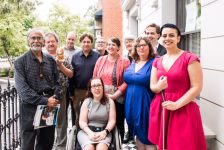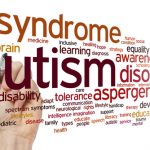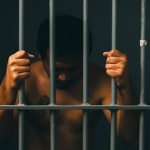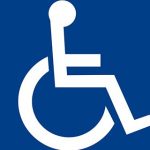Barriers to Justice: An Interview with People With Disability Australia

The UN Convention on the Rights of Persons With Disabilities was adopted on December 13 2006. It seeks to protect the rights and dignity of people with disability. Australia ratified the international human rights treaty on July 28 2008.
Article 12 of the convention calls on states to provide equal recognition before the law for persons with disabilities. While Article 13 outlines that governments ensure effective access to justice for people with disability.
However, under the Australian criminal justice system, this equality is not always available for people with disability, and there are numerous barriers that block their access to justice.
Detained behind bars
There is an overrepresentation of people with disabilities in the Australian prison system. According to UNSW professor Eileen Baldry, more than half of the 65,000 people that flowed through the nation’s correctional facilities during 2015 had disabilities.
A recent NSW Mental Health Commission report outlined that with such high numbers of people with mental illness or cognitive impairment coming into contact with the criminal justice system and being detained in prison, it should be “assumed the norm.”
This overrepresentation is even higher when it comes to Aboriginal and Torres Strait Islander people with disability. Professor Baldry points out that these people are being managed by police, the courts and prisons, as there is a lack of community-based services available for them.
Endemic violence
Often when people with disability come into contact with the criminal justice system – whether as the victim of a crime, the accused or a witness – they are at an increased risk of not being believed, and being disrespected and disregarded.
This poses major problems for those trying to escape violent situations. People with disability in this country experience violence at far higher rates than the rest of the community. Ninety percent of women with an intellectual disability suffer sexual assault during their lives.
The 2015 Senate inquiry into violence, abuse and neglect against people with disability in institutional and residential settings found this mistreatment begins with the “de-valuing” of these people. It recommended a royal commission into violence and abuse against people with disability.
However, despite the support of disability advocacy groups and calls from the United Nations to hold the royal commission, the Turnbull government has flat out refused the proposal.
Advocacy groups to be lost
The federal government’s solution is to establish the National Disability Insurance Scheme (NDIS) Quality and Safeguards Commission. The national body will respond to complaints of violence, regulate service providers and screen workers.
However, this approach has led the NSW state government to announce that it will no longer be providing funding to local advocacy groups, as its disability funding will soon be transferred to the national body. And the NDIS will not be providing for advocacy groups.
Upholding rights
People With Disability Australia (PWDA) is a national disability rights and advocacy group that has been operating since 1981. The non-government organisation seeks to provide people with disability with a voice of their own.
Sydney Criminal Lawyers® spoke to PWDA’s director of policy and advocacy Kate Finch and senior policy officer Meredith Lea about the barriers to accessing justice people with disability face, and the dire need for the royal commission.
Firstly, what is the situation like today in regard to violence against people with disability in this country? And have any improvements been made since the time the Senate inquiry made its recommendations?
Meredith: Our individual advocates here at PWD continue to support a number of people with disability on issues related to violence. We haven’t seen a decrease in that number.
Kate: The systemic issues of violence against people with disability haven’t been addressed. It’s because the fundamental, underlying concerns will only likely come out in a royal commission, which will give people with disability the opportunity to be heard across a wide range of areas where violence occurs.
Also, a concern with the NDIS is the shift with responsibility around oversight and response to violence against people with disability, who are receiving services. That has the potential not to be adequately addressed.
In its fifth periodical on Australia, released on June 29 this year, the United Nations Committee on Economic, Social and Cultural Rights said that it was especially concerned about violence and abuse against women with disabilities.
Just how bad is the situation for women with disability in Australia?
Meredith: In terms of the situation for women with disability in relation to violence, we discuss this kind of issue in regards to an intersectional discrimination lens. We see discrimination as encompassing a number of different things based on the identity of each individual.
So, women with disability would have a different experience to a man with disability. Rates indicate that women with disability experience violence at higher rates than women without disability, but also, higher rates than men with disability.
There is definitely a higher rate of violence for that cohort. And responses need to have that gendered, but also disability lens, in order to respond adequately to that cohort.
We’ve already touched on this. But, what is the position of your organisation on the proposal for a royal commission?
Meredith: Alongside our colleagues within the disability sector, we have been long advocating for a royal commission into violence against people with disability in all settings.
As you might know, we are a founding member of Disabled People’s Organisations (DPO) Australia, alongside Women With Disabilities Australia, the First People’s Disability Network and the National Ethnic Disability Alliance.
As DPO Australia we recently coordinated a civil society statement to the Australian government in relation to the need for a royal commission.
So, we’re really strong on the need for it. And we believe that it’s the only real way that will provide us with a comprehensive and a just response to all forms of violence against people with disability.
That civil society statement was signed by over 160 civil society organisations and almost 400 individuals.
What sort of barriers do people with disability who are experiencing violence face when trying to access support services and justice within the Australian setting?
Meredith: There are so many barriers and they’re often quite complex. And that complexity can be attributed to the intersectional discrimination that I touched on.
Different layers of discrimination that people experience can intersect and create quite new and unique forms of discrimination for people with disability seeking to escape violence.
That can be physical access barriers to services or access to justice settings. It can also be being reliant on the perpetrator for their ongoing provision of support, or even being reliant on the perpetrator to make a report or complaint.
Obviously, if you are relying on the perpetrator, you’re not going to be able to access those support services that could help you leave. And in institutional facilities, in particular, that can be quite complex.
But, also parents with disability are actually ten times more likely than other parents to have their child removed from their care. So, that could be a barrier to leaving instances of domestic violence.
As well as a host of other things, like not being believed by others, having their legal capacity called into question, not having other people understand the level of threat they are facing, especially when the perpetrator is the primary support giver. And they may not be aware that they are experiencing a crime.
Article 12 of the UN Convention on the Rights of Persons With Disabilities provides equal recognition before the law. While Article 13 seeks to ensure effective access to justice.
In your opinion, are these provisions a reality for people with disability within the Australian criminal justice system at present?
Meredith: The current legal capacity framework in Australia does deny or limits the exercising of legal capacity for many people with disability. And that has far reaching implications and can place people with a disability at an increased risk of violence or exploitation.
The decisions of people with disability can be taken out of their hands and made on their behalf by third parties: non-legally appointed guardians, such as your family members, or other actors, who are legally appointed under the current substitute decision-making or guardianship framework.
Kate: The Australian Law Reform Commission conducted the Equality, Capacity and Disability in Commonwealth Laws inquiry. It found that provisions within Australian legislation can lead to or block people with disability from pursuing their rights under the criminal justice system. And there are structures in place that undermine those rights.
They made really clear recommendations around the legal capacity framework, which we support.
In our view, a legal capacity of a person is not judged upon that individual. It is the capacity of the supports around them to enable them to express their will and preferences, and uphold their rights.
So, it is not about the individual and a lack of capacity. It is about what supports are made available to them.
Why are so many people with disabilities ending up in the in the Australian prison system?
Kate: Some of those individuals will not have been recognised as having disability in the community and in the justice system, and therefore, they’re not provided with appropriate support in order to respond to the situation that they are in.
The intersectional circumstances of people with disability often makes them more at risk of homelessness, and drug and alcohol abuse. It places people in circumstances that makes them more at risk of coming into contact with the justice system.
Meredith: There’s a lack of access to early intervention or prevention services for people with disability. That can include a lack of access to appropriate disability health or other therapeutic services and support.
Often, the over-incarceration of people with disability from Aboriginal and Torres Strait Islander communities can include a lack of access to culturally appropriate services and support.
The Turnbull government is establishing the National Disability Insurance Scheme (NDIS) Quality and Safeguards Commission, which is not without its critics.
What is your organisation’s take on the safeguards commission and what it will provide?
Kate: We have concerns that the government see the setup of the commission and the quality and safeguards framework as an adequate response to violence against people with disability.
Primarily, because violence against people with disability does not just occur in service settings. And so, for those people whose experiences fall outside that, there will be no oversight.
In the frame of being able to access services through personal choice, it may mean that a person is provided with a service from an individual who is not a service provider, and therefore, may not fall under the unit of the quality and safeguards framework.
It has its limitations and we are very concerned that the government see it as the quick response to the violence across the board.
Meredith: There are concerns that the NDIS commission will only provide protection to the 10 percent of people with disability who actually access NDIS support. There’s going to be a lot of people who are not covered by those protections.
And lastly, the NSW government has stated that it is going to cut funding to advocacy services for people with disability, as its funding will now be funnelled into the national body.
What will the loss these advocacy groups in NSW mean for people with disability? And is this only occurring within this state, or is this a nationwide trend?
Kate: Each state has different agreements with the government in terms of their NDIS provision, with how its money has been transitioning.
The majority of states have signed over all of their disability funding to the Commonwealth government, which includes funding for peak representative bodies, some individual advocacy services and information services that are currently funded by the states.
It will result in a huge gap for people with disability in terms of meeting their needs. The NDIS has no remit to provide advocacy services. So advocacy services will not be provided in individual packages for people with disability.
The majority of issues that advocates deal with are not to do with disability service provision, they are to do with issues of accessing mainstream services, such as housing, transport, education, and domestic violence response. So, it is a considerable loss that advocacy funding will be removed at a state level, when the transition occurs.
And I understand that the Senate inquiry recommended that states and territories not reduce advocacy funding with the roll out of the NDIS.
Kate: There’s been a number of inquiries. The Victorian government did a review of the benefits of advocacy services. In that state, they provided some state-based advocacy funding to be ongoing. But, currently in NSW and Queensland, they have not committed to that.
And in NSW, that funding will come to an end in June 2018, which means that after that time, a number of advocacy services in the state will not be around anymore, unfortunately.
Thanks very much to both of you for taking the time out to have this chat with us today.
You’re welcome.







